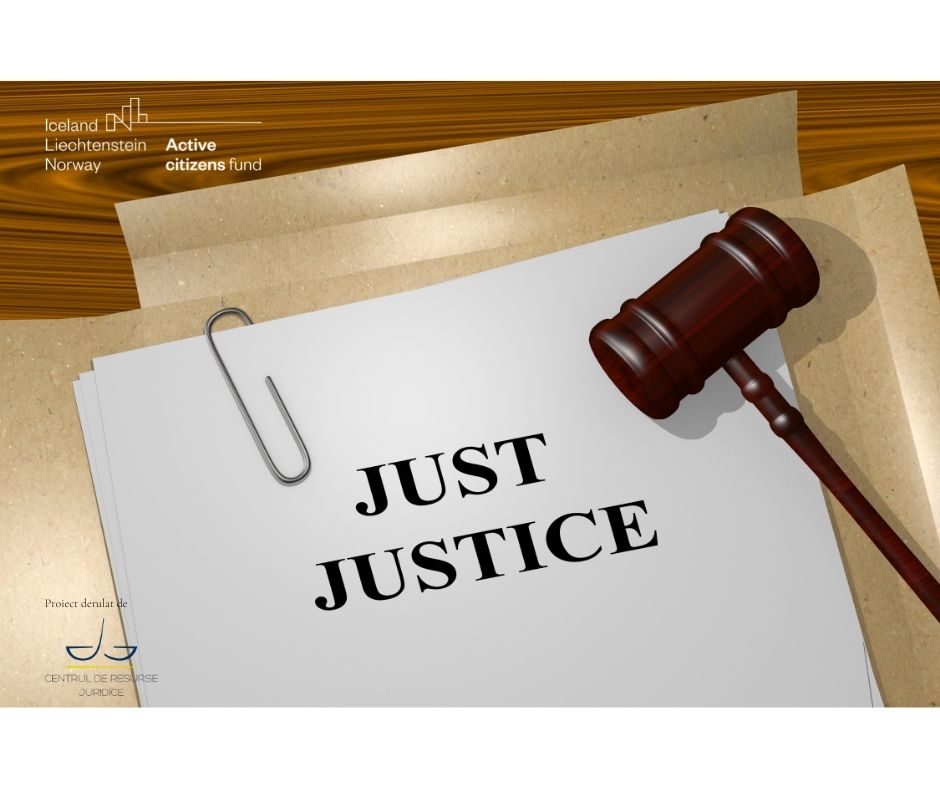According to the agenda presented on the website of the Superior Council of Magistracy, on Thursday, May 12 2022, the section for judges will nominate the judge candidate and the plenary will elect, on the same day, the new president of the Superior Council of Magistracy, replacing the interim president of the SCM, Bogdan Mateescu.
1. On the existence of an interim president of the SCM
Much has been written about the fact that there is no such thing as an “interim” President in office, as his mandate is of a constitutional nature and, consequently, cannot exceed the one-year term provided for in Article 133(3) of the Romanian Constitution. However, Judge Bogdan Mateescu, after the expiry of the one-year term, remained President, beyond that term, holding an improvised title, which is not defined by law, let alone in the Constitution: that of interim President. The fact that the two candidacies submitted within the legal deadline, before the expiry of Judge Mateescu’s one-year term of office (of Judges Andreea Chiș and Gabriela Baltag) were rejected by the plenary, does not amount to the improvisation, contrary to the Constitution, of Judge Mateescu’s term of office as interim President until the election of a new President.
2. With regard to the rejection of the two candidacies, the following considerations must be taken into account:
– Any of the nine judges, elected members of the SCM, are eligible to be presidents for a one-year term of office
– They got there by the vote of their colleagues from the courts corresponding in rank, therefore it makes no difference whether they are liked or disliked by their colleagues in the SCM; therefore, the plenary is obliged to vote in favour when there is only one candidate, respectively to elect one candidate when there are several candidacies submitted
– If this were not the case, it would mean, as in the present case, that if certain candidacies are not approved by the majority (although, in our case, there were two of them, and not just one), the legally non-existent position of interim President can be created multiple times, i.e. whenever the candidacies submitted are not approved
– Last but not least, the Section for Judges, according to Article 24 of Law no. 317/2004, is the one that debates and appoints candidates for the office of President, therefore it can be assumed that, in good faith, at least one of the candidates will be approved by the plenary, and that a situation such as the one in the present case, when none of the candidates are approved, should not happen
– Therefore, not electing someone is effectively censoring the will of the electors, fellow magistrates, who elected their judicial representatives to the SCM, this election including the potentiality of those elected to be, at some point, presidents of the SCM. To refuse this is to empty their constitutional mandate, namely what is expressly stated in Article 133(3):
The President of the Superior Council of Magistracy shall be elected for a non-renewable term of one year from among the magistrates referred to in paragraph 2(a).
- The legal texts are to be read and interpreted in good faith, with the intent of producing legal effects and not with the intent of suppressing these effects and, if possible, with the aim of producing the effect desired by the Constituent Assembly, i.e. the President’s term of office must be 1 year and no longer than that; this being the case, the only constitutionally loyal conduct would have been for the plenary to vote favourably on December 2021 on one of the two judges who applied within the legal deadline.
As the public opinion knows, this did not happen and we have witnessed, from the constitutional high ground (and not otherwise) of this forum called the Superior Council of Magistracy, a legal innovation (disgrace) called the institution of the interim president.
In this regard, the Constitutional Court says in its Decision no.611/2017, paragraphs 106 and 112, that the most important meaning of the concept of the rule of law is the respect of positive law norms, in force for a given period of time, which expressly or implicitly regulate competences, prerogatives, powers, obligations or duties of state institutions/authorities. […] the loyalty of State institutions/authorities must always be shown to constitutional principles and values, while inter-institutional relations must be governed by dialogue, balance and mutual respect.
Given this extremely dangerous precedent of customary rewriting of what is legal or constitutional, it is good to know, as mentioned in the preamble, that on Thursday, 12 May, the SCM will elect a new president. We do not know why only now this happens, but it is a big step forward. Although we should have known who the candidates for the post are, as well as what their intentions are (their projects for the candidacies), so far there are no public details.
Finally, in the absence of such information, we consider that, insofar as Judge Marian Budă of the High Court of Cassation and Justice is applying, his candidacy does not meet the conditions of validity, namely:
- Judge Budă is an interim member of the SCM and not a full/elected member of that body, as he is a TEMPORARY replacement for Judge Mariana Ghena, an elected member of the SCM, who recently retired.
- What does the law say in this situation?
Art. 57 para. 1 of Law 317/2004 on the Superior Council of Magistracy:
- In the event of termination of one’s membership in the Superior Council of Magistracy before the expiry of their term in office, new elections shall be held for the remaining vacancy, according to the procedure laid down by law.
- Until the election of a new member, the interim member shall be the judge or prosecutor who has obtained the next highest number of votes in the elections held in accordance with Art. 8 para. (3) or Article 13 or, as the case may be, Article 19.
- In the case referred to in paragraph (1), the person elected to fill the vacancy shall serve as a member of the Superior Council of Magistracy for the remainder of the term of office remaining until the expiry of the 6-year term.
- What does the Dictionary say about the meaning of the noun “interim”: (Person) who temporarily exercises a function in place of the incumbent, having as synonyms ad-interim, provisional, temporary
- Therefore, the interim judge has a limited mandate as a member of the SCM, exercising this function until the High Court of Cassation and Justice appoints a representative elected by this court by means of elections; this has not happened, the reason remaining unclear, so Mr. Budă exercises an interim mandate, the ICCJ and the SCM remaining, through passivity, without a full judge member of the SCM in the vacant seat.
- Thus, we consider that Judge Marian Budă does not possess the general vocation to become President of the SCM like the other judges of this forum, as he holds office for a fixed time period, namely until another judge is appointed, following the ICCJ elections. The fact that the SCM and the ICCJ, although under a legal obligation to organise such elections, do not/have not done so is not a reason to transform Mr Budă’s mandate as interim member into a full mandate for the remainder of the SCM’s collective mandate.
- From a formal point of view, by Decision No. 1/2022, published in the Official Gazette, Part I, No. 50 of 17 January 2022, the Senate correctly validated Mr. Marian Budă as an interim member of the SCM and not as a full member.
- In Decision No. 59/2022, the Constitutional Court states in its recitals (paragraph 31) that:
However, in reality, in the event of termination of one’s membership in the SCM before the expiry of their term in office, new elections are held for the remaining vacancy, in accordance with the procedure laid down by law, and it is only after those elections have been held that Article 18(1) of Law No 317/2004 becomes applicable.
- What does Article 18(1) say?
The Superior Council of Magistracy draws up the final list of magistrates elected in accordance with Art. 8 para. (3) and Art. 16 para. (2) and shall forward it to the Permanent Bureau of the Senate.
Conclusions:
- There is a legal difference between the elected magistrate and the magistrate acting in the interim until the new member is elected
- According to the Constitution, the President of the SCM can only be elected from among the elected members (Article 133(3)).
- As there are 4 elected judges in the SCM who have not yet served as President (Andreea Chiș, Gabriela Baltag, Evelina Oprina and Mihai Bălan), the principle of legality, as well as the principle of institutional loyalty, obliges the plenary to vote for one (any) of them; any other solution leads to the accentuation of the ridiculous situation the SCM is currently in
Finally, if Judge Bogdan Mateescu, an elected member, is acting president, how will a president who is not an elected member, but rather a judge acting in the interim be appointed?



